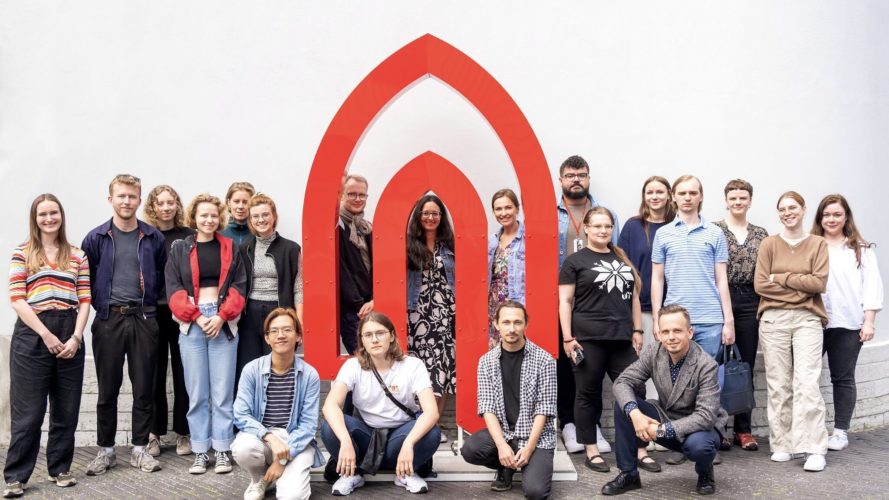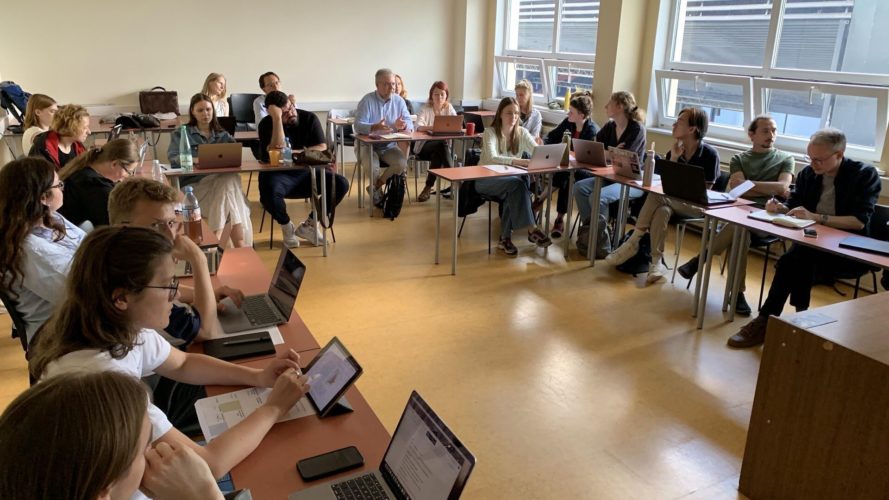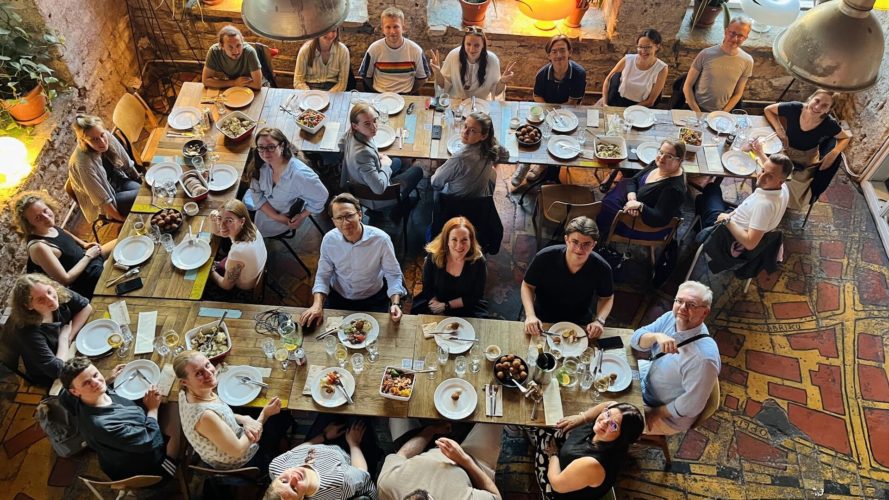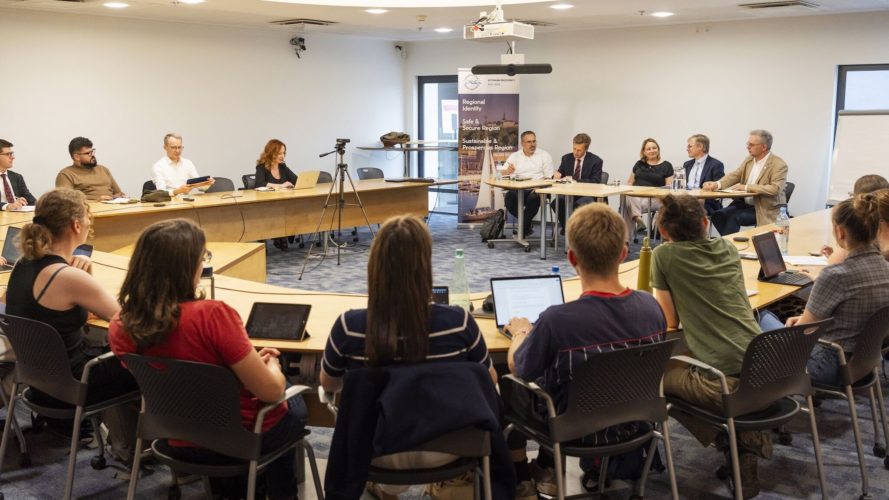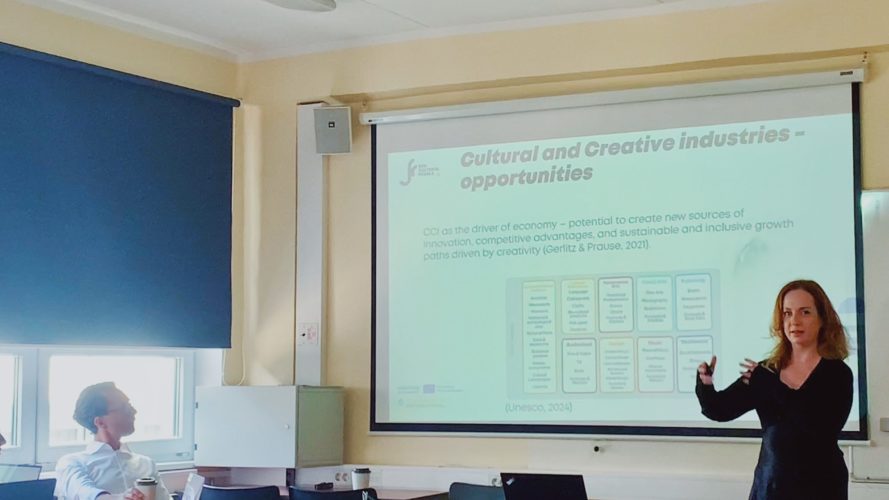Exploring Baltic Identity and Resilience: CBSS Summer University 2024 in Tallinn
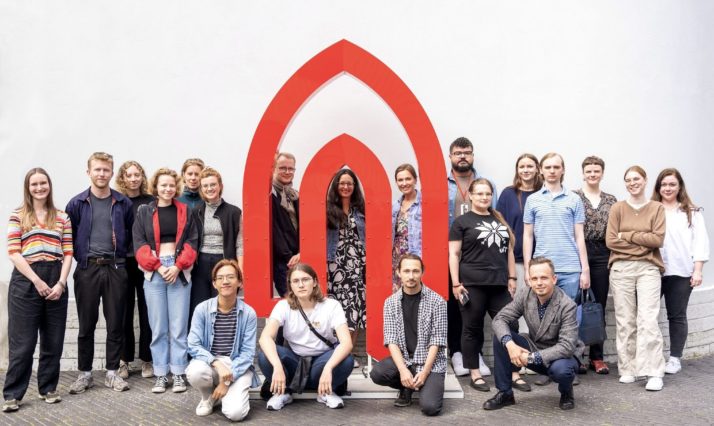
In the past week from July 15 to 21, part of our team participated in the CBSS Summer University 2024 “Balticness in Transition: Exploring Identity and Resilience in the Baltic Sea Region” held at Tallinn University.
Around 20 students from the Baltic Sea Region, along with our interns Frederik and Anna, and participants from Indonesia, Brazil, and Belarus gathered to dive deep into critical questions about identity and resilience in the Baltic Sea Region. This CBSS Summer University, funded by the Council of the Baltic Sea States and organized within the Young People Network for Balticness (YoPeNET) project, focused on how a shared regional identity can bolster resilience against crises, renationalization, climate challenges, and transformative changes.
The week-long program featured lectures from experts and scholars, vibrant discussions, and an inspiring visit to Tartu, the European Capital of Culture 2024, as a practical experience of the region’s cultural dimensions. The lectures covered various perspectives, including Cultural Resilience, Democratic Resilience in Mass and Elite Identity Discourses, Cyber Security and Strategic Communication, Restoration as Resilience, Resilience from Below, and Maritime Culture in the Baltic Sea Region.
On Day 2, our CCI Research and Development Advisor Žanete Eglīte, alongside Project Coordinator of the BSR Cultural Pearls Project Felix Schartner Giertta, held a seminar on Cultural Resilience in small cities, discussing opportunities within Cultural and Creative Industries (CCI). Žanete Eglīte highlighted lifestyle migration for better life quality as a consequence of using CCI as a driver for resilient communities, referencing the Latvian town of Cēsis. Felix Schartner Giertta presented the BSR Cultural Pearls Project, co-funded by the EU’s Interreg Programme, with CBSS as the Project Lead Partner. He emphasized the role of local authorities as the backbone of communities and noted that social trust and place attachment might be more significant than preparedness and leadership in terms of civil protection.
On Day 4, our DCI Regional Director Lizaveta Dubinka-Hushcha moderated a panel discussion about Estonia, the CBSS presidency, and the role of transnational democratic institutions. The panel featured Kazimierz Musiał (CBSS), Andreas Sepp (Ministry of Foreign Affairs), Arthur Purbrick (NATO Forward Land Forces), and Damian Szacawa (Institute of Central Europe / Maria Curie-Skłodowska University). Cultural resilience, defined as a system’s capacity to endure shocks without breaking down, maintaining functions, and improving through feedback, was viewed from diplomatic, international, and academic perspectives. Ukraine was cited as an example of a resilient society. Andreas Sepp highlighted language as a means of protection, discussing Estonia’s dilemma of wanting to be both unique and part of a community. The discussion also covered the Baltic Sea Region’s resilience plan, emphasizing youth engagement, energy sustainability, and security and defense.
